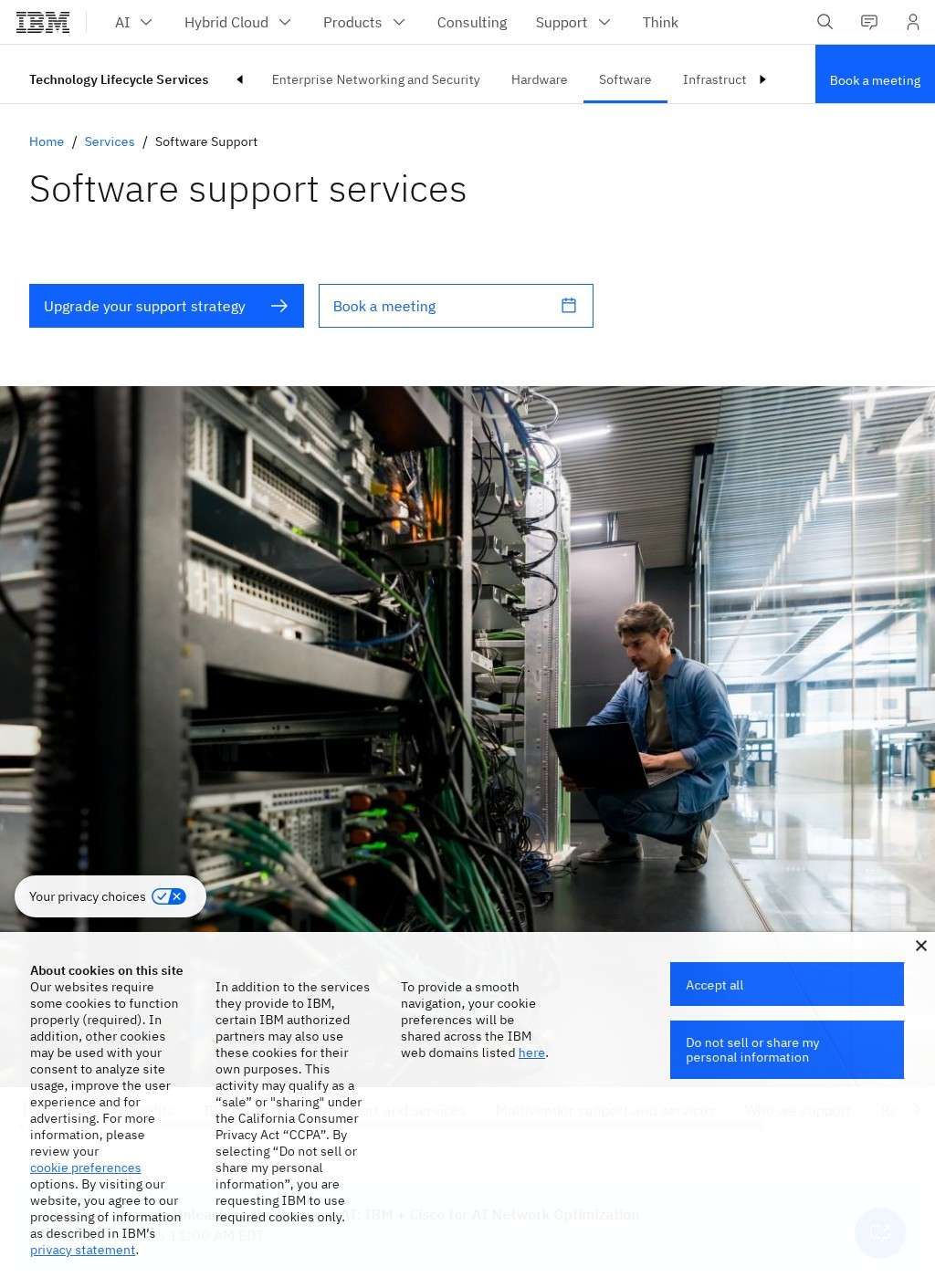IBM Software Support Services represents one of the most established and comprehensive software maintenance platforms in the enterprise technology landscape. The service operates as a central hub for organizations seeking reliable, professional maintenance support for both IBM's extensive software portfolio and numerous third-party applications. What sets IBM apart in the software maintenance space is their dual approach of supporting their own products while simultaneously offering expert maintenance for competing platforms like Microsoft, Oracle, and SAP HANA systems.
The platform's core offering revolves around what IBM calls "Software Maintenance services" or "subscription and support," which provides ongoing subscriptions, regular fixes, and new code-defect support specifically for IBM Power and IBM Z operating systems, IBM storage system software, and associated IBM software products. This isn't just basic patch management – it's a comprehensive approach that includes proactive monitoring, preventive maintenance, and strategic technology lifecycle management. Organizations can leverage this service to maintain system stability while planning future upgrades without the pressure of immediate forced migrations.
One particularly valuable aspect of IBM's approach is their support for legacy systems through their Software Support Extension program. This service can provide up to three years of extended support for end-of-service IBM software, which is particularly valuable for organizations running critical business applications on older systems. The reality is that many enterprises can't immediately upgrade every system when IBM announces end-of-life dates, and this extension service provides a bridge that maintains security and functionality while organizations plan their modernization strategies.
IBM's third-party software support capabilities represent a strategic differentiator in the market. Their Support for Microsoft offering helps companies optimize availability, decrease complexity, and reduce costs through comprehensive software support that includes access to dedicated Microsoft Technical Solution Managers. Similarly, their Oracle support services allow organizations to maintain legacy Oracle software without rushing into unwanted upgrades or premature cloud migrations. This multi-vendor support approach means organizations can consolidate their support relationships, often resulting in significant cost savings and simplified vendor management.
The platform extends beyond traditional maintenance to include specialized support for enterprise Linux distributions. IBM's relationship with Red Hat provides clients access to deep technical expertise for running Red Hat solutions on IBM infrastructure, while their SUSE support offers procurement of SUSE subscriptions combined with single-source support solutions. For organizations running SAP HANA on IBM Power systems, they provide holistic support services that include proactive monitoring to identify issues before they become problems, along with faster problem resolution through single-point-of-contact management.
IBM's approach to software maintenance emphasizes the consolidation of support vendors as a strategy for reducing operational complexity and costs. Rather than managing relationships with multiple support providers across different software platforms, organizations can leverage IBM as a single source for diverse technology stacks. This consolidation typically results in streamlined support processes, reduced administrative overhead, and often significant cost savings compared to maintaining separate support contracts with multiple vendors.
The technical depth of IBM's support services reflects decades of enterprise software experience. Their support teams include specialists with deep expertise in complex enterprise environments, and they maintain extensive knowledge bases developed through supporting some of the world's largest organizations. This expertise is particularly valuable when dealing with complex integration issues or performance optimization challenges that require understanding of how different software components interact within larger enterprise architectures.
IBM's Support Insights Pro platform represents their modern approach to proactive support management. This AI-enabled tool helps organizations simplify inventory management, mitigate security risks, and better leverage support case metrics to improve overall IT reliability. The platform provides preventive maintenance analytics designed to help support teams solve IT issues before they become emergencies, representing a shift from reactive to proactive support management.
The pricing structure for IBM's software support services varies significantly based on the specific software being supported, the level of service required, and the support schedule chosen by the organization. IBM offers flexible engagement models including dedicated support teams, project-based support, and traditional per-incident support options. Organizations can typically choose from different service levels with varying response times and support availability windows to match their specific business requirements and budget constraints.
For organizations evaluating IBM's software support services, the company maintains extensive documentation about their service offerings and provides consultation services to help potential clients understand how their support model would apply to specific organizational needs. Their support model is particularly well-suited for large enterprises with complex, multi-vendor software environments where the operational benefits of consolidated support relationships can provide both cost savings and simplified management. Contact information is readily available through their main support portal, where organizations can access initial consultation services and detailed information about service level agreements and support methodologies.
